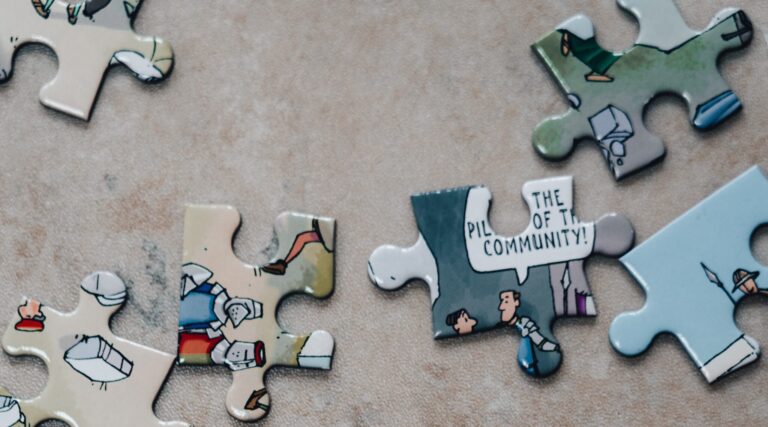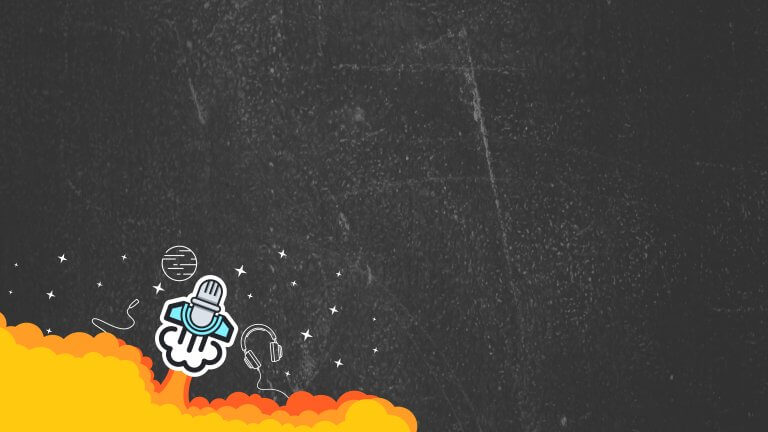Best Marketing Strategy For Your Courses? Start a Free Podcast. Here’s Why.
As long-term listeners and followers know, I’m a big advocate for podcasting. Anyone who wants to should create a podcast and I make the case for getting into podcasting in Episode 154. Read on to learn why podcasts are an especially effective marketing tool for course creators:
- More than any other medium, podcasts create a feeling of trust in your audience — which means they’re more likely to pay for your course.
- Podcasts give you access to an audience that’s already interested in your area of expertise: and opportunities to direct them to your course and newsletter.
- A free podcast won’t devalue your paid content if you carefully choose which content to use in each, and promote additional benefits like access to yourself and a community.
A major reason why it will benefit you as a course creator is because podcasts generate a feeling of trust between listener and host that no other medium — even YouTube — has matched.
Consistently taking the time to record a podcast on your chosen area of expertise proves that not only are you knowledgeable and worth listening to, you care enough to show up for your audience — for free.
While you should offer the podcast for free to listeners, you should think about it as part of your marketing budget. It’s an expense worth investing in to grow your audience so you can sell more courses, and it really can do that for you.
Based on Episode 214 of How I Built It, here’s my argument on why course creators should invest in making a podcast, how to use the call to action feature of the format, and why a free podcast won’t detract value from your paid content.
Podcasts are the friendliest, most trust-building medium
There are three things podcasts encourage your audience to do better than practically any other medium:
- Know you 👋
Listening to someone talk every week makes them feel like someone you know. You get familiar with their personality and their interests, no matter what they’re talking about.
- Like you ❤️
There’s something about having someone speaking directly to you that makes you feel attached to them. If someone is listening to a podcast week after week, they probably like something about the host. (I hope so, anyway!)
- Trust you 🤝
Perhaps most importantly for a course creator, consistently releasing a well put-together podcast establishes you as a subject matter expert in your audience’s eyes. (Well, ears.)
It also implies that you’re passionate about what you’re talking about beyond making money: otherwise you wouldn’t be doing this for free.
All of these instincts make people more likely to take your course. A podcast gives you name recognition (people know you), a personal touch (people like you), and the authority people want from an educator (people trust you.)

Learn how podcast pros produce their shows…
…and how you can improve yours.
One breakdown, delivered to your inbox weekly.
Learn the tools and processes used by top podcasters and reclaim hours of your life every week.
Podcasts give you a ready-made audience
The people who have gone to the effort of tracking down a podcast about, say, bike maintenance, are exactly the type of people most likely to take a course on how to maintain a bike.
Given this undeniable fact, treat your podcast as part of your marketing strategy: a part that’s very good at generating the know/like/trust trifecta mentioned above.
Calls to action work well on a podcast
Anyone who has ever listened to a podcast — including How I Built It! — knows that calls to action like rate, review and subscribe have become a standard part of the format. (Ads are also calls to action.)
Specifically for course creators, podcasts provide an opportunity to directly speak to that ready-made audience we just talked about, telling them about your course and how to sign up.
🌟 Call to Action Top Tip: People often listen to podcasts while doing other things (mowing the lawn, in my case.) There’s a good chance they’ll be distracted when you deliver your call to action so repeat it at some point in the episode, to make sure you catch them at least once. 🌟
Another call to action that’s helpful for course creators (and anyone really) is “Sign up for my newsletter.”
- A weekly newsletter gets your name and content in someone’s inbox on a consistent basis, even if (gasp) they skip that week’s episode of the podcast.
- It’s another opportunity to promote your course and/or services — and the podcast, which also promotes these.
- If people other than your parents want to hear from you every week, they must really like and trust you. In other words, they’re the people most likely to pay for your course.
Use your podcast as a testing ground for your course content
Working on a module that feels like it might not fit in with the rest of your material? Worried that you’re not explaining a concept clearly enough? Looking to gauge interest in a topic you want to cover?
Use your podcast to workshop the content you’re wrestling with. Make a podcast episode based around whatever it is, and ask your audience what they think. This is even easier if you already have the audio or at least the outline.
If your immediate response to this is “Why should I give away course content for free,” that’s a good question — read on for the answer.
A free podcast won’t devalue your course — if you do it right!
One of the most common — and understandable — concerns course creators have about creating a podcast is that making their expertise available for free will lead to fewer people paying for their courses.
This sounds logical, until you take stock of the fact that information is only part of what people get when they take your course. A course customer also gets:
- A structure tailored for learning
Where podcasts aim primarily to entertain or inform, courses aim for a deeper level of education, and they’re structured to help people retain information.
For example, in my courses, I start by explaining what a particular concept is (e.g. podcast feeds), and why it’s important and how to use it. I end with actionable steps (e.g. add a podcast feed to your website.)
It’s not just what you tell people: it’s how you deliver the information to them that makes it easier to learn and worth the money.
- Your direct attention
I give my students more access than I give my non-paying public users.
If someone asks me a question in the comments on YouTube, I’ll answer it, because I’m hoping I might be able to convert them to paying for the course. But I won’t engage in a long back-and-forth.
In contrast, I give my students virtual office hours when I’m available to help them. They can also email me.
Direct access to you and your knowledge is a bonus only paying customers should get.
- A community
Anyone who has spent time in the YouTube comments section knows that it’s not the best place to make friends.
In addition to getting more of my time, people who buy my courses get access to each other via the Student Center, where they talk about what they’re making, trade tips, and ask for advice.
- More information
Hold back certain information for people who pay for your course.
For example, I’ll give away for free a checklist of things people need to do to make a podcast: but I won’t tell them how to do it unless they pay for the course.
Another example: If a new tool or tip comes out around your particular topic, give it to your students straightaway, and make the non-paying users wait six months to hear about it on the podcast.
You can also give paying students a private version of the podcast, with extra details, bloopers, and behind-the-scenes content.
Even if you only offer information to people paying for your course — and as you can see, you probably have more than that — you would still be able to give them more insights than what you give away in a free podcast.
The bottom line: The difference between taking a course and listening to a podcast is like going to college versus reading books.
With the books, you might eventually find the same information: but at college, it’s hand-delivered and explained to you in a way that’s designed to sink in. On top of that, you get tailored homework assignments to really make sure it sticks.
If you don’t understand something at college, you can ask your professors or the other students. And while you’re at it, those other students can become part of your network.
Course creators need to trust that they have enough knowledge to fill multiple modules and a free podcast: especially when it’s such an effective way to increase your audience.







